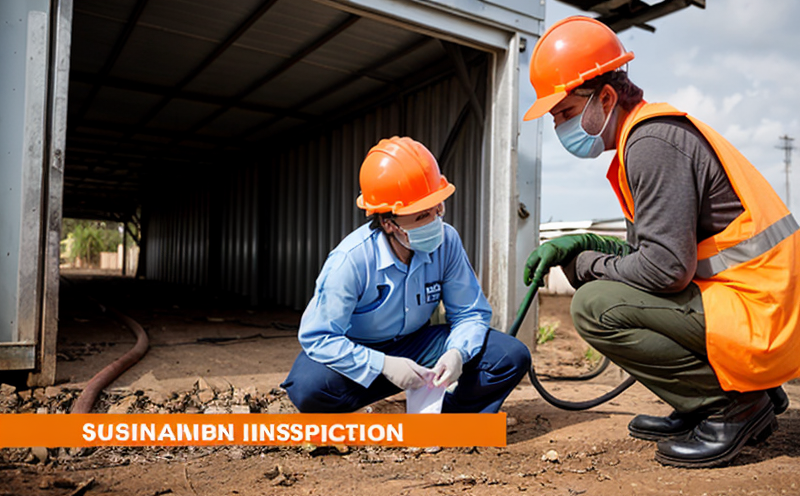Sustainability performance inspection
At Eurolab, sustainability performance inspection is a critical service that helps organizations in the energy systems and environmental surveillance sectors ensure compliance with international standards while enhancing their commitment to environmental responsibility. This service encompasses a wide range of testing and assessment activities aimed at evaluating the sustainability metrics and performance indicators of various products, materials, and processes.
The primary goal of this inspection is to provide clients with detailed insights into how their operations contribute to or detract from overall environmental sustainability. By leveraging advanced analytical techniques and industry-leading expertise, Eurolab ensures that its clients receive accurate, reliable, and actionable data on the sustainability performance of their products and processes.
This service covers a broad spectrum of areas including material composition analysis, lifecycle assessment (LCA), energy efficiency evaluation, greenhouse gas emissions measurement, and waste management optimization. Our team of experienced professionals uses cutting-edge technology and methodologies to conduct these assessments, ensuring that our clients have the best possible information at their disposal.
One key aspect of sustainability performance inspection is material composition analysis. This involves examining the components of a product or material to determine its environmental impact throughout its lifecycle. By identifying potentially harmful substances early in the development process, organizations can make informed decisions about alternative materials that are more sustainable and environmentally friendly.
Lifecycle assessment (LCA) is another crucial component of sustainability performance inspection. LCA provides a comprehensive overview of a product's environmental impacts from raw material extraction through manufacturing, use, disposal, and end-of-life recycling or waste management. This holistic approach allows organizations to identify areas where improvements can be made to reduce their carbon footprint and other negative environmental effects.
Energy efficiency evaluation is also an important element of sustainability performance inspection. In the energy systems sector, this involves assessing how efficiently a system converts input energy into useful output energy. By optimizing energy usage, organizations can significantly reduce operational costs while minimizing environmental impact.
In addition to these technical evaluations, Eurolab also offers greenhouse gas emissions measurement services. This service helps clients understand their carbon footprint and develop strategies for reducing it. By accurately measuring emissions, organizations can set realistic reduction targets and track progress towards achieving them.
Finally, waste management optimization is a critical part of sustainability performance inspection. Properly managing waste not only reduces environmental harm but also conserves resources by recycling or repurposing materials. Our team works closely with clients to develop effective waste management plans that align with their business goals and regulatory requirements.
Eurolab Advantages
- Accurate Data: Eurolab ensures that all sustainability performance inspections are conducted using state-of-the-art equipment and methodologies, providing clients with precise results.
- Comprehensive Analysis: Our team of experts covers a broad range of areas including material composition analysis, lifecycle assessment, energy efficiency evaluation, greenhouse gas emissions measurement, and waste management optimization.
- Industry-Leading Expertise: Eurolab's professionals stay current with the latest developments in sustainability practices, ensuring that clients receive up-to-date information on best practices.
Why Choose This Test
Compliance with international standards: Ensures adherence to ISO 14001 and other relevant environmental management systems.
Enhanced reputation: Demonstrates commitment to sustainability, which can improve brand image and customer trust.
Cost savings: Identifies opportunities for reducing waste, improving efficiency, and minimizing energy consumption.
Regulatory compliance: Helps organizations meet government regulations related to environmental impact assessments.
Improved decision-making: Provides actionable data that supports informed choices regarding sustainability initiatives.
Long-term benefits: Promotes a culture of continuous improvement in environmental practices, leading to sustainable growth over time.
International Acceptance and Recognition
- ISO 14001 Compliance: Our sustainability performance inspections are conducted according to the internationally recognized ISO 14001 standard, ensuring consistency and reliability.
- ASTM D7854: Utilizes this widely accepted American Society for Testing and Materials (ASTM) standard for lifecycle assessment.
- EN 16287: This European Norm provides guidelines for conducting environmental product declarations, which are often required in sustainability performance inspections.





